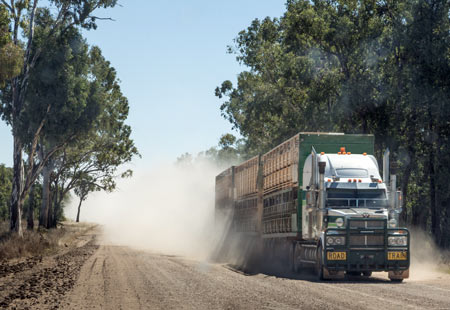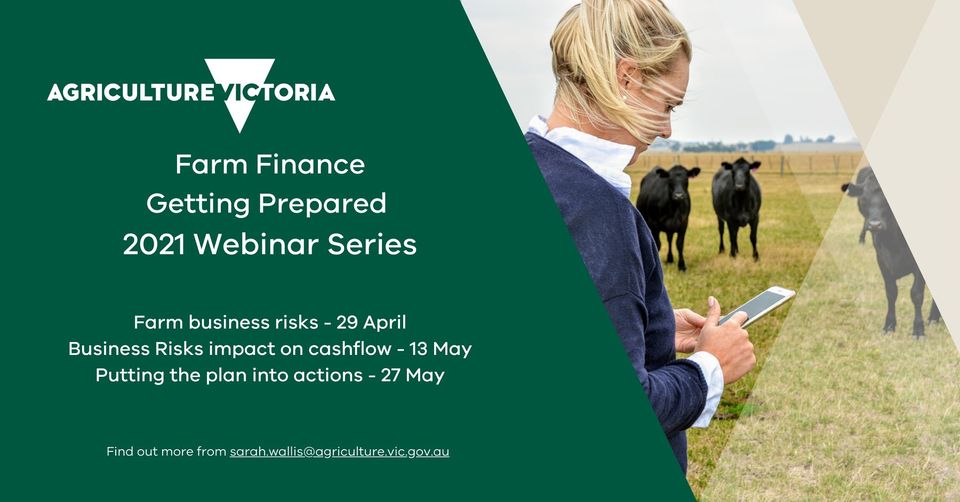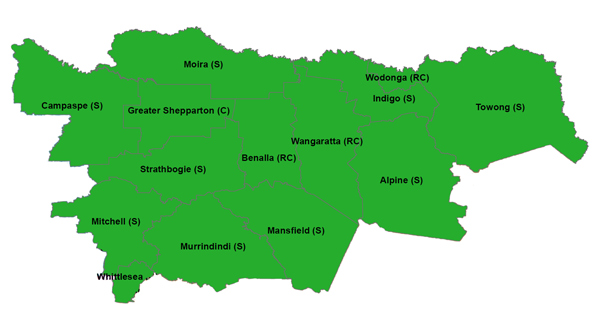
Regional Round-up is a monthly newsletter providing an overview into the environmental and business conditions affecting farmers and rural businesses in the Goulburn Valley and North East Victoria.
Dairy
Welcome rain towards end of month may ease the pressure on fodder crops, and mild weather may assist pasture growth. The hay market appears to be holding at $240-250/t (pasture), $190-240/t (cereal), $300-340/t (lucerne) delivered.Goulburn Valley seems to hold quantities of hay (some not so great in quality) & and fodder is being sourced from areas such as Yea. Tasmania has also been looking to the mainland to purchase hay given a poor season.
Locally it appears farms have opted to buy hay, not water, and grow extra summer fodder. However there are also some paddocks under hard stocking rates. Cost of temporary water and fodder is placing pressure on many dairy farmers who are generally in tighter cash positions.
Milk prices have remained constant with some small seasonal increment but are still below $5.60. Step ups seems unlikely. It now seems likely that there will be no step downs. The Global Dairy trade index initially rose 5.6% in December but fell by 3% in January with a further fall of 7.4% on 2nd Feb 2016. The GDTI price average for all dairy commodities traded at 02/02/2016 was $2,121 USD per Metric Tonne. Last year at 03/02/2015 it was $3,042 and 5/2/14 it was $5,042. An overall 58% drop in average global price would be expected to have some long term impact on the local price although it has remained cushioned to some degree by the fall in the Australian Dollar.
Cropping/Sheep
Above-average rains for the month across the North East. Rains were welcomed by most farmers but does not have a big impact at this time of year on the growing season ahead, however soil profile will benefit.Rainfall has caused major seed germination across all areas. Some growers complaining about the rain because of extra cost of sprays needed for weeds. Early germination of clover and grass is positive for sheep producers, however will remain to be seen whether these pastures will survive the next month or two.
Some grain growers storing grain since harvest in the hope of getting a premium price in coming months.
In years gone by rule of thumb time for planting was around the middle of May. In recent years the norm is now the middle of April or earlier. This is due to the change in seasons and is a good example of growers reacting to climate change, whether they are believers or not.
Croppers moving their baled crops slowly. Bales still present in many stubble paddocks. Lamb prices remain strong.
Horticulture
Stone fruit harvest is nearly complete. Some growers experienced large quantities of small fruit mainly due to lack of thinning. This was rejected by the early market but some is now being accepted. This may be because of lack of supply due to hail losses in the region from October and November storms.Beef
Good recent rainfall has somewhat reduced demand for fodder in some areas, as there has been a very good germination of clover, and perennial pastures have responded very well – particularly in country closer to the ranges.
Cattle prices continue to be very strong. Prices at the last sale for the month at Barnawartha increased by up to 30-40c per kilo. Analysts are predicting that prices will continue to increase over next 18 months due to lack of supply. This will however be impacted by seasonal conditions.
Breeders continuing to hold extra heifers to increase their stocking rates. Cattle producers generally very positive about the current season.
Other
Some violent summer storms have caused some isolated property damage.
Irrigation;
Storage levels in Lake Eildon are at 43% against 69% last year. The Hume is holding 36% (against 43% LY) and Dartmouth 46% (against 80%LY). GMW resources storage levels website.
GMW announced a further increase in allocation for the Goulburn and Murray systems on 01/12/2015. High reliability water share determinations are now:
- Goulburn system increased by two per cent to 87 per cent
- The Murray system also increased by two per cent to 98 per cent HRWS
- The Loddon system increased by three per cent to 74 per cent HRWS.
- The Broken system increased by three per cent to 25 per cent HRWS













